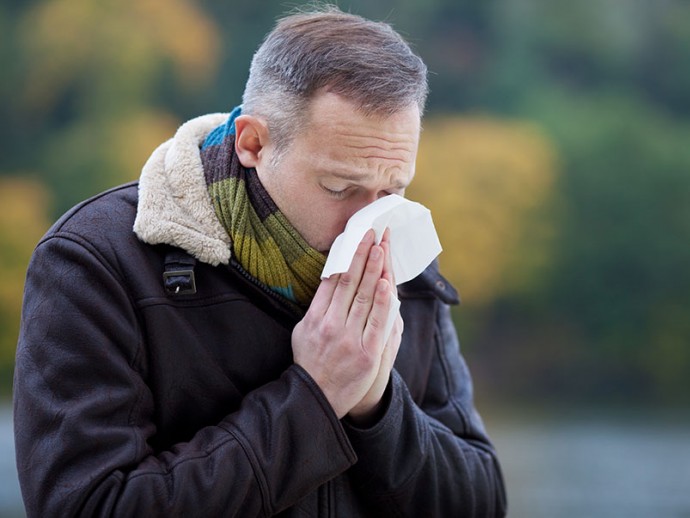
Is there any truth to commonly held beliefs about colds and flu viruses? Read on to find out.
Cold weather causes colds and flu.
Mostly false: Although cold and flu season coincides with the colder months in North America, winter doesn’t cause either; the timing is simply part of the virus’s natural cycle.
Cold weather isn’t totally off the hook. Inhaling cold air may weaken the nose’s immune system, making infections more likely, according to British researchers. When going outside, consider covering your nose with a scarf.
Cold and flu viruses can withstand cold temperatures, while winter’s dry, chilly air allows them to spread more readily. The fact that we tend to get twice as many colds in winter may be connected to the fact that we’re indoors more, keeping us in closer contact with others who are already sick.
We’re more likely to catch a cold or the flu on long airplane flights.
True: You’re twice as likely to get sick on a plane as on the ground. While we blame post-flight colds on recirculated air inside aircraft, the real culprit is very dry cabin air—as low as 5 percent humidity on long flights. The dry air thickens the protective mucous layer in our nose, making it unable to trap viruses.
To reduce the chances of getting sick, stay well hydrated and use either a personal saline nasal mist or a mist dispenser with distilled water to keep the mucous layer thin during the flight.
Taking antibiotics fights colds and flu.
False: Because colds and flu are caused by viruses, not bacteria, antibiotics have no effect on them. However, because colds and flu weaken the immune system, it’s possible to develop secondary bacterial infections like bronchitis, ear infections, sinusitis and pneumonia that require antibiotics.
Taking antibiotics to prevent possible complications is counterproductive and can result in antibiotic-resistant bacteria, making bacterial infections harder to treat. Flu or cold symptoms that drag on or worsen could signal a bacterial co-infection requiring medical attention.
Feed a cold, starve a fever.
False: While getting proper nutrition speeds up recovery, over- or undereating doesn’t work. It’s more important to stay well hydrated to prevent other infections from developing.
- Chicken soup can ease sore throat and congestion.
- Drinking hot herbal teas, ginger tea or other warm drinks soothes the throat, as does gargling with salt water.
Exercising regularly can prevent colds.
False but … While exercising regularly doesn’t necessarily prevent colds, it does strengthen the immune system, helping us recover faster if we do get a cold. So don’t use cold weather as an excuse to stay in bed. Get up. Get moving. Get healthy!






